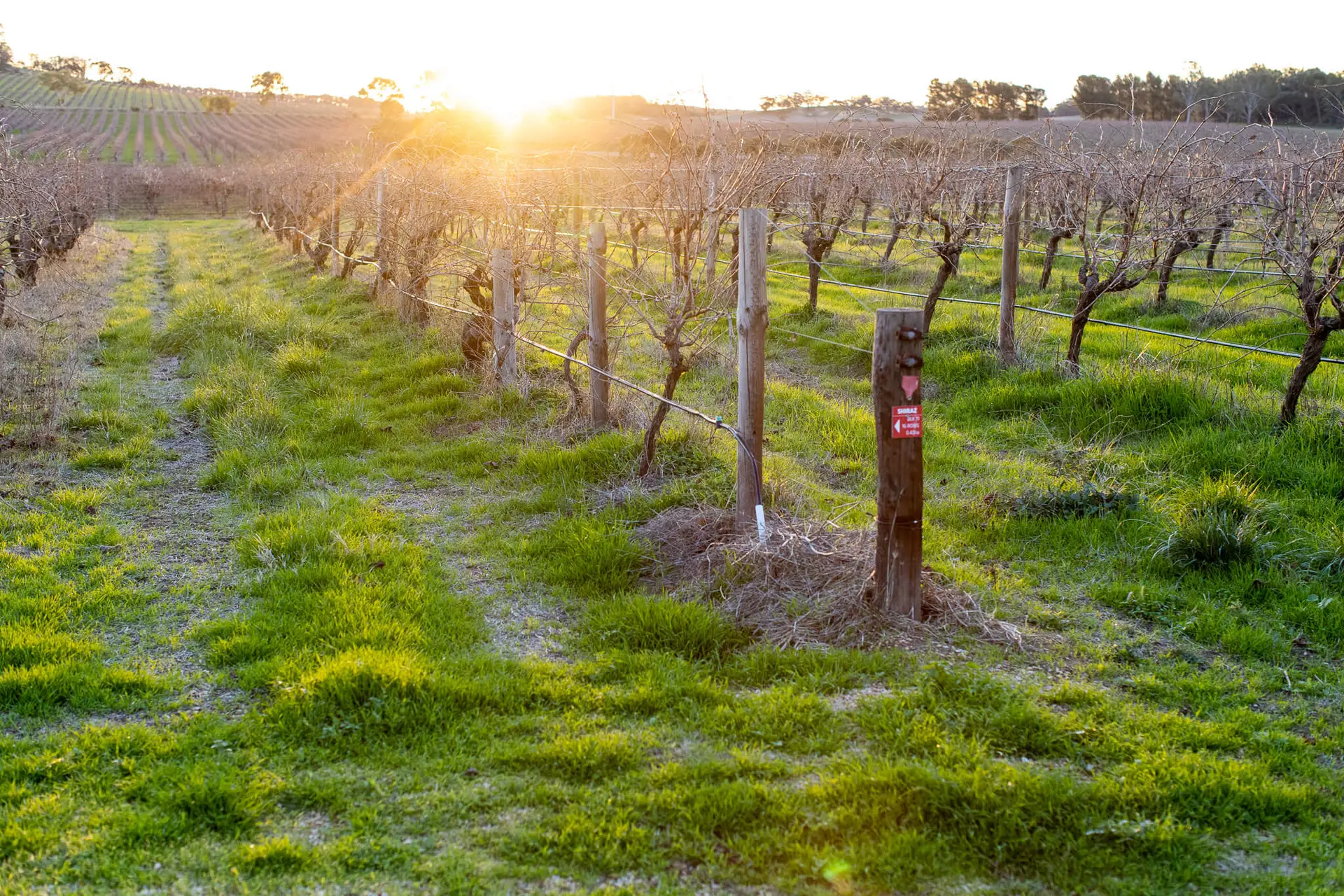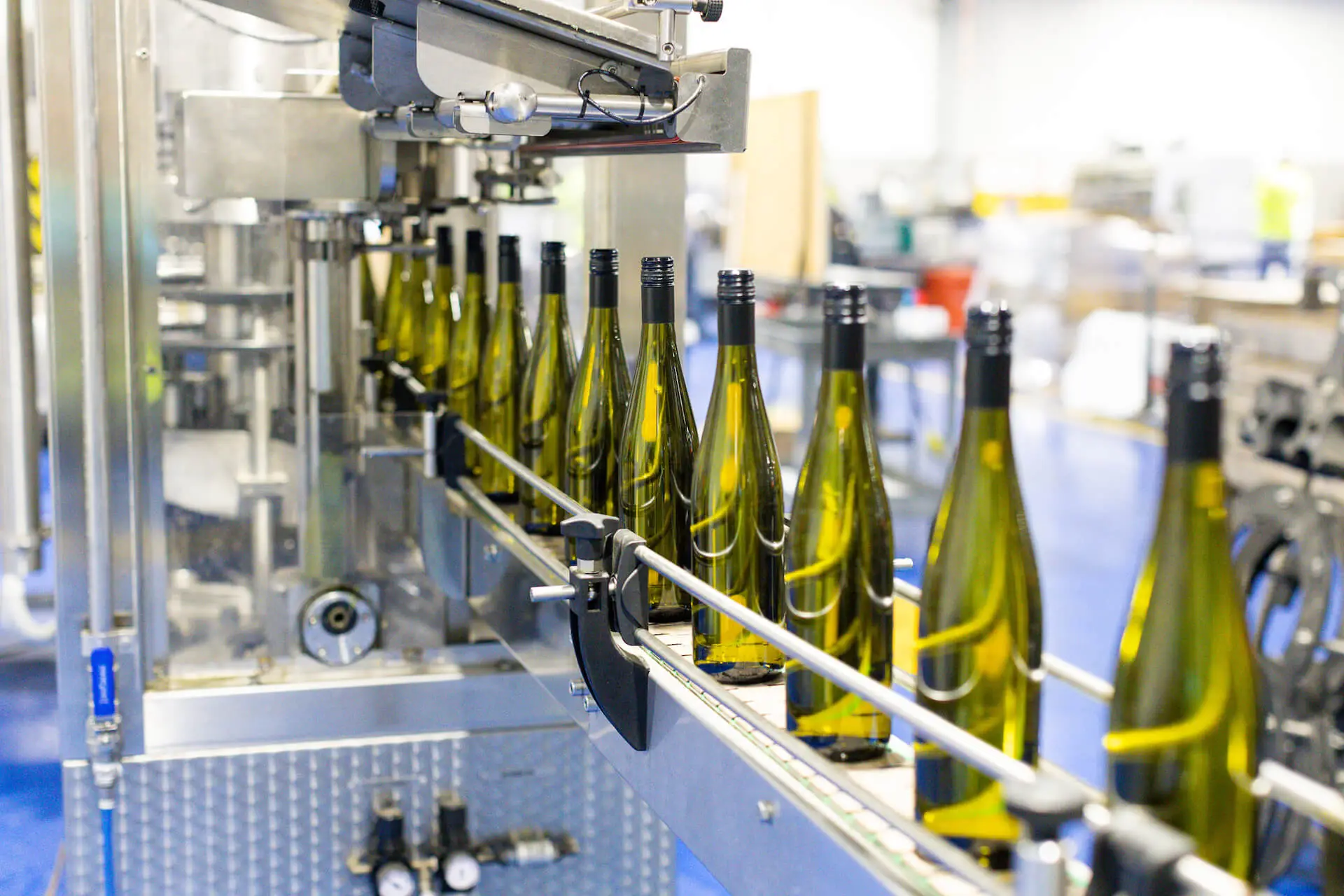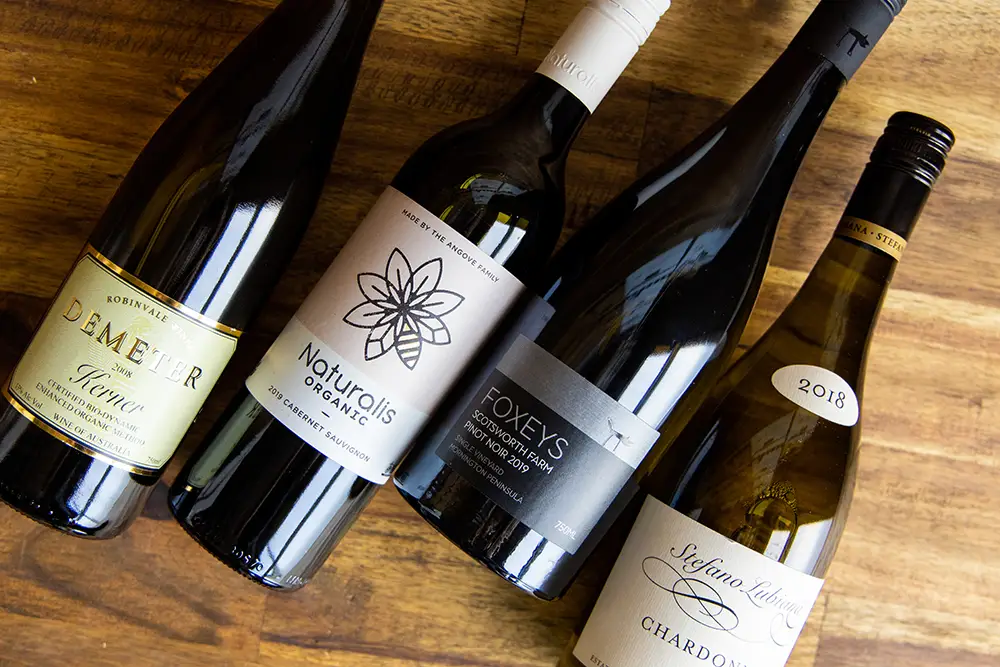Organic wine grapes are produced without synthetic pesticides, herbicides, fungicides, or fertilisers. It is most often the best expression of both the grape and the terroir – the land and environment in which it is grown. The organic principles that govern organic viticulture and wine are:

Organic Viticulture
Organic wine production, or organic viticulture, should reflect the sustainable practices used to improve the soil quality with minimal winemaking intervention. Soil cover (pasture, residues, crops) should aim for 70% coverage year-round to prevent soil degradation and to enhance biological activity within vineyards. A diverse ecosystem should be created and maintained by such means as companion planting, mixed cropping and creating wildlife refuges. This, in turn, encourages beneficial insects, mixed opportunistic weed grazing and ecosystem services. In this way, the vineyard becomes a self-regulating, natural ecosystem, that combats problems intrinsically and eliminates the need for artificial, and potentially toxic, chemicals such as synthetic herbicides and fungicides.
Organic Viniculture
The allowed inputs for organic wine processing are substantially reduced compared to non-organic wine. However, winemakers still require aides to ensure the full fermentation process is completed and wines mature correctly. Sulphur dioxide is often used to aide fermentation in organic wine; however, it is restricted to half that allowed within non-organic wine; and many organic producers using only minimal amounts. Grapes naturally produce sulphur dioxide as part of the fermentation process in varying amounts. Preservative free organic wine, or natural organic wine, does not contain additional sulphur dioxide. Reducing the sulphur dioxide content has been shown to lessen hangovers associated with wine, just another reason to choose organic.

Allowed Inputs for Organic Wine in Australia
Listed below are just some of the allowed inputs for organic wine processing in Australia. For a full list, see the Australian Certified Organic Standard (ACOS).
| Activated carbon | Lactic acid bacteria |
| Argon | Malic acid |
| Ascorbic acid | Membrane filters |
| Bentonite | Milk – skim |
| Calcium alginate/Chitosan | Milk – whole |
| Calcium carbonate | Mistelle (fortified organic grape juice) |
| Cane sugar (for sparkling wine & vermouth) | Nitrogen |
| Carbon dioxide | Oxygen |
| Casein | Oak pieces |
| Citric acid | Pectolytic enzymes |
| Concentrated grape juice (organic) | Potassium caseinate |
| Copper sulphate | Potassium carbonate |
| Diammonium phosphate (EU Only) | Potassium hydrogen carbonate |
| Diatomaceous earth | Potassium metabisulphite |
| Egg white | Potassium tartrate |
| Evaporated milk | Silicon dioxide |
| Gelatine | Sulphur dioxide – gas |
| Grape alcohol | Sulphur dioxide – aqueous |
| Grape juice – organic | Tannic acid |
| Ion exchange resins (inert) | Tartaric acid |
| Isinglass | Thiamine and other vitamin supplements |
| Kaolin | Water (to a max. limit of 3% for mixing additives) |
| Lactic acid | Yeast |
Health Benefits
Organic viticulture and production relies on keeping plants in optimum health to minimise plant disease. This translates to organic wine grapes having thicker skins and higher concentrations of beneficial anthocyanins and antioxidants, including polyphenols and cardio-friendly resveratrol. Organic wines are also free from residual traces of agricultural additives such as synthetic pesticides and herbicides. With all organic food and beverage products, agrichemical maximum residue limits (MRLs) should be no more than 10% of that allowed within Food Standards Australia and New Zealand (FSANZ) guidelines.
Read our Health Benefits of Organic article for more detail on organic food in general.
Biodynamic Wine
Biodynamic standards are additional requirements that need to be fulfilled on top of certified organic requirements. The aim, through time, is to limit external inputs into the farming system, most particularly fertilisers and manures, such that the farming system becomes a ‘closed’ or ‘self-sustaining’ ecological system, whilst ensuring sustainability and nutrient maintenance of the overall farming system. It is anticipated that use of brought-in composted materials to Biodynamic farms shall cease by the time full certification is achieved.
In biodynamic viticulture, the use of compost made using biodynamic compost preparations is essential for soil and plant health. Several preparations are used for different purposes and must be prepared correctly and applied at certain times. Horn manure, or Preparation 500 is the most important of these as it is full of beneficial microbes that are spread on the land each year.
Biodynamic Preparations Allowed for use under Organic Certification
| Horn silica (501) | Horn manure (500) |
| Yarrow (502) | Chamomile (503) |
| Stinging nettle (504) | Oak bark (505) |
| Dandelion (506) | Valerian (507) |
In-Conversion Organic Wine
It can take between 1-3 years for a vineyard to achieve organic certification, depending on its chemical usage history. Vignerons can sell organic wine as ‘in-conversion’ to indicate they are fulfilling all the requirements of certified organic, however have not yet completed the process.
Why Choose Organic?
Organic wine contains fewer synthetic chemicals, can have higher amounts of antioxidants than non-organic wine, and is a better choice for the environment. It’s these reasons and more that organic is the better choice when it comes to wine.

Terroir: Environmental factors that affect the quality of grapes and wine.
Vigneron: A person who cultivates a vineyard and grapes for winemaking. A vigneron may also be a vintner or viticulturist.
Viniculture: Winemaking and the art or science of making wine. Also called enology or oenology.
Vinification: The process of making wine.
Vintner: A wine merchant or a person who sells wine. A vintner may also be a winemaker.
Viticulture: Winegrowing, cultivation and harvesting of wine grapes.
Viticulturist: A person who specialises in viticulture or winegrowing.